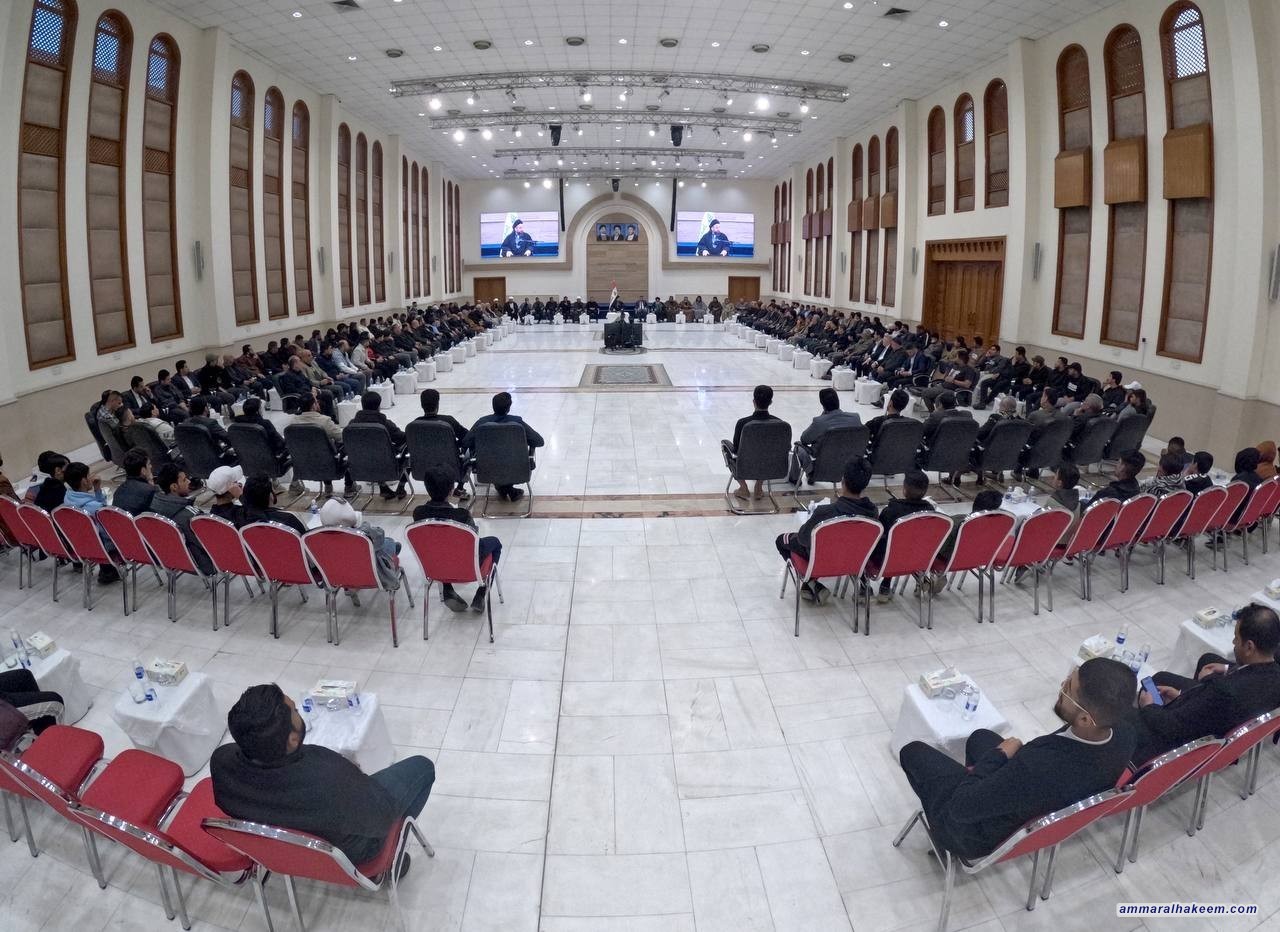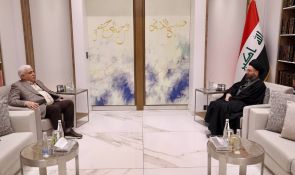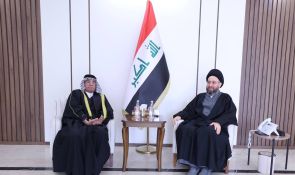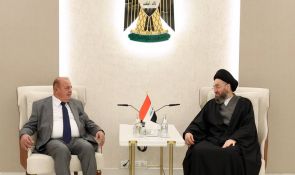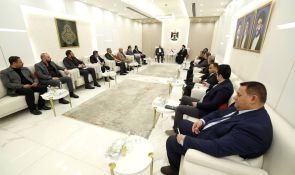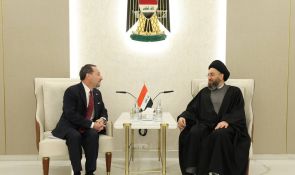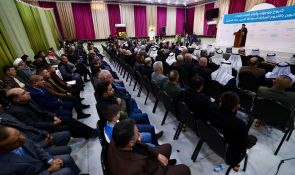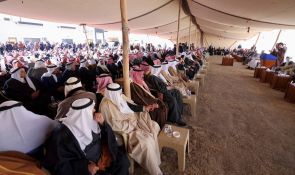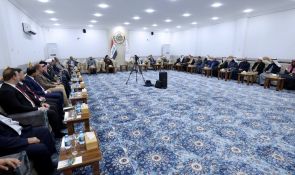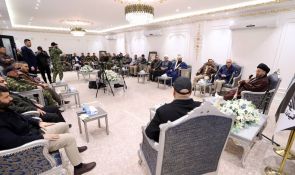Sayyid Al-Hakeem: “Husseini Rituals Are a School of Education, Sacrifice, and Giving”
During his meeting with Shaheed Al-Mihrab Processions Board (May Allah sanctify his soul), Sayyid Ammar Al-Hakeem, Head of the National State Powers Alliance, emphasized the importance of efforts dedicated to serving pilgrims of Imam Hussein (peace be upon him) and other Imams. His Eminence praised the significant work provided by the board, particularly during the Rajab pilgrimage marking the martyrdom anniversary of Imam Musa Al-Kadhim (peace be upon him), which H.E. described as one of the largest pilgrimages after Arbaeen.
H.E. noted that Husseini rituals have evolved into a genuine school for education, sacrifice, and giving. H.E. explained that these rituals extend beyond spiritual dimensions, leaving profound positive impacts on individuals and strengthening humanitarian values within Iraqi society. H.E. also highlighted how the spirit of generosity and giving was vividly evident in the Iraqi people’s conduct during the Gulf Cup 25, describing it as a continuation of the services rendered during Arbaeen and other pilgrimages.
H.E. affirmed that Allah's blessings descend upon those who serve Imam Hussein (peace be upon him) and his pilgrims in this life and the hereafter, emphasizing that these rituals are among the noblest paths a person can follow. H.E. further stated that belonging to the legacy of Shaheed Al-Mihrab (May Allah sanctify his soul) imposes double the responsibility on everyone to provide exemplary service.
H.E. also reflected on the severe hardships endured by Imam Musa Al-Kadhim (peace be upon him), including imprisonment, torture, and betrayal by close associates. H.E. stressed the necessity for Imam Hussein’s servants to embody noble character, unwavering commitment, and a sincere desire to serve pilgrims.
H.E. called for accommodating those eager to contribute to service and ensuring opportunities for them to serve pilgrims, emphasizing that local communities should take ownership of processions to foster a sense of responsibility and motivation. H.E. highlighted the importance of allowing people to donate and participate in service provision.
Moreover, H.E. underscored the need for careful selection of poetry and elegies in processions, ensuring they carry messages that enrich the community's spiritual and moral sustenance alongside their physical needs.

